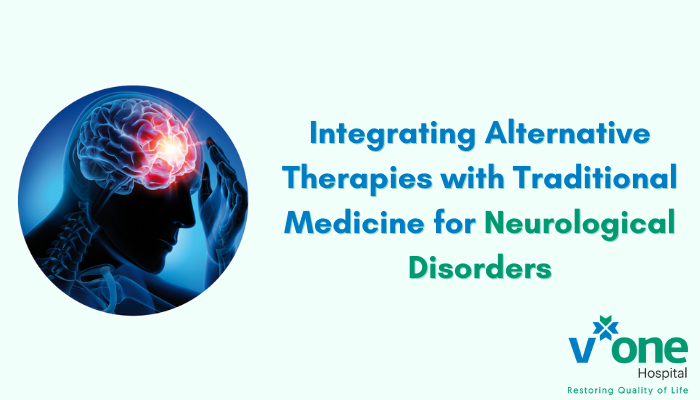Integrating Alternative Therapies with Traditional Medicine for Neurological Disorders
Living with neurological disorders can be challenging, but there are various treatment approaches available to manage symptoms and improve quality of life. In addition to traditional medical treatments, many individuals explore alternative therapies to complement their existing regimen. This blog explores the integration of alternative therapies with traditional medicine for neurological disorders, offering insights into various approaches and their potential benefits.
Understanding Neurological Disorders
Neurological disorders encompass a wide range of conditions that affect the brain, spinal cord, and nerves. Common examples include epilepsy, Parkinson’s disease, multiple sclerosis, Alzheimer’s disease, and migraines. These disorders can cause symptoms such as pain, tremors, muscle weakness, cognitive impairment, and sensory disturbances, impacting daily functioning and overall well-being.
Traditional Medical Treatments
Traditional medical treatments for neurological disorders often involve medication management, physical therapy, occupational therapy, and in some cases, surgical interventions. These treatments aim to alleviate symptoms, slow disease progression, and improve overall function. While traditional medicine plays a crucial role in managing neurological disorders, some individuals seek additional therapies to complement their treatment plan.
Alternative Therapies
Alternative therapies encompass a diverse range of practices that fall outside the scope of conventional medicine. These therapies focus on promoting holistic well-being and addressing the root causes of health conditions. Some common alternative therapies for neurological disorders include acupuncture, chiropractic care, herbal medicine, massage therapy, yoga, meditation, and nutritional supplements. While the effectiveness of these therapies may vary, many individuals report benefits such as reduced pain, improved mobility, enhanced relaxation, and better overall quality of life.
Integration of Alternative and Traditional Approaches
Integrative medicine combines the principles of traditional and alternative medicine to provide comprehensive care for individuals with neurological disorders. This approach acknowledges the importance of addressing the physical, emotional, and spiritual aspects of health. By integrating alternative therapies with traditional treatments, neurologist in indore can offer patients a more holistic and personalized approach to care. This may involve collaborating with practitioners from various disciplines to develop a tailored treatment plan that addresses the unique needs and preferences of each individual.
Benefits of the Integrative Approach
There are several potential benefits to integrating alternative therapies with traditional medicine for neurological disorders. These include:
1. Enhanced symptom management: Alternative therapies can complement traditional treatments to help manage symptoms such as pain, stiffness, fatigue, and anxiety.
2. Improved quality of life: By addressing the physical, emotional, and spiritual aspects of health, integrative medicine aims to improve overall well-being and quality of life for individuals living with neurological disorders.
3. Personalized care: Integrative medicine takes into account each patient’s unique needs, preferences, and goals, allowing for a more personalized approach to treatment.
4. Empowerment: Integrative medicine empowers individuals to take an active role in their health and well-being by offering a variety of treatment options and self-care strategies.
5. Reduced side effects: Some alternative therapies may have fewer side effects compared to traditional medications, making them a preferred option for some individuals.
Challenges and Considerations
While integrative medicine offers many potential benefits, it is essential to approach it with caution and careful consideration. Not all alternative therapies are supported by scientific evidence, and some may interact with traditional medications or pose risks to certain individuals. Before incorporating alternative therapies into your treatment plan, it is crucial to consult with your healthcare provider to ensure they are safe and appropriate for your specific condition.
Conclusion
Integrating alternative therapies with traditional medicine can offer a holistic approach to managing neurological disorders, addressing the physical, emotional, and spiritual aspects of health. By exploring various treatment options and collaborating with healthcare providers, individuals living with neurological disorders can work towards optimizing their health and well-being. Remember to always consult with your healthcare provider before making any changes to your treatment plan, and prioritize safety and evidence-based practices in your journey towards better health.

